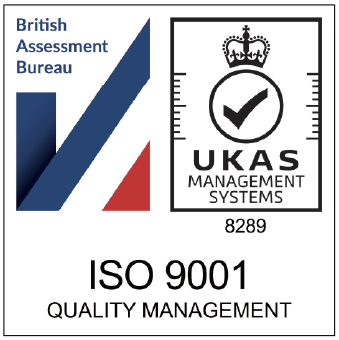Are you sick and tired of dealing with middlemen? Do you want to avoid the hassle of haggling with retailers and marketplaces? Then you could benefit from adopting a direct to consumer fulfilment strategy. Want to know more about this emergent fulfilment model? Then keep reading and 3PL will tell you everything you need to know about D2C eCommerce fulfilment…
What is D2C eCommerce fulfilment?
Let’s start with the basics. What exactly is D2C eCommerce fulfilment?
Well, as the name suggests, direct to consumer (D2C) fulfilment involves a manufacturer of a product marketing and selling their products directly to a consumer, leaving out the usual intermediaries such as retailers and marketplaces.
Direct to consumer brands are able to design and manufacture their own products, conduct their own marketing (with the vast majority of this marketing taking place on social media platforms), and fulfil the products themselves, creating a direct relationship with their customer base.
You may not realise it, but you’ve probably purchased products from D2C brands yourself. Some of the biggest and most well-known D2C brands include Dollar Shave Club, Casper, Warby Parker, Gymshark, Gousto, Glossier, and many others.
The rise and rise of D2C eCommerce fulfilment
As those brand names indicate, the D2C business model has become big business in recent years.
Here in the UK, direct to consumer brands generated an enormous £96 billion in sales in 2020. And, that number is only set to grow.
According to market research firm Statista, the direct to consumer market in the UK is set to be worth £120 billion by 2023.
It’s a similar story in other countries, with the D2C market expected to be worth $175 billion in the US by 2023.
It’s big business. So much so, that big businesses are now getting in on the D2C act themselves.
Whilst the initial D2C brands to make it big were digitally-native startups, an increasing number of very large established brands are now adopting the direct to consumer fulfilment model. Think Apple, GAP and other established businesses that have moved more to a direct to consumer model rather than selling through intermediaries.
Other major established businesses have gone one further and simply acquired popular direct to consumer brands outright. Perhaps the best example of this is Dollar Shave Club, which was acquired by the multinational Unilever for $1 billion in 2016.
So, if you’re thinking about adopting a direct to consumer fulfilment model for your eCommerce brand, you’ll be in very good company.
What are the benefits of direct to consumer fulfilment?
There must be some good reasons as to why so many brands – new and old alike – are adopting a direct to consumer fulfilment model.
We’ve touched on some of these reasons above, but to really drive the point home, we’ve set out the key benefits of D2C fulfilment in more detail below.
Control
With direct to consumer fulfilment, the destiny of your brand is completely in your hands.
You have complete control over every part of your brand and its products. From the design and manufacture of your products to the way in which they are marketed, to the way in which your products reach your customers, you are in control.
You won’t be beholden to the whims of retailers and marketplaces, who will often want a say in pricing, marketing and other important factors.
Brand messaging
Related to the point above about control, by adopting a direct to consumer fulfilment model, you’ll be able to determine your brand messaging with no outside interference.
For example, if you sell household consumables then you’ll be able to set a price point that reflects your brand. So, if you want your brand to be perceived as an aspirational and high end one, then you can set your prices slightly higher than equivalent competitors.
That’s not always possible when you’re selling through intermediaries such as supermarkets. In many cases, supermarkets will want you to commit to periodic discounting, bulk buy deals and other similar pricing tactics.
If you’re keen to maintain the integrity of your brand, then avoiding these sorts of tactics is a must, and is something that the D2C fulfilment model allows you to do.
Margins
Talking of pricing, we come to another major benefit of the direct to consumer fulfilment model – margins.
Because there are no middlemen involved, you can choose to either sell your products at a lower price point, beating your competitors and grabbing a larger share of the market, or you can sell your products and simply enjoy a higher profit margin.
Either way, the direct to consumer fulfilment model allows you to generate more revenue and/or profits.
Direct access to your customers
By selling directly you will have the opportunity to build strong relationships with your customers.
As you will be in contact with your customers through each stage of the sales process, from the initial marketing activity through to post-sales customer service, you’ll be able to form a much stronger bond with your customers than if you were to sell through intermediaries.
This essentially allows you to build up a base of customers that you ‘own’. You’ll be able to gather important data such as email addresses, location, purchasing preferences and more. All of which will help you to retain customers over the longer term.
Brand loyalty
The direct to consumer fulfilment model comes with another significant benefit – brand loyalty.
As you are able to maintain direct communications with your customers throughout the entire buying journey, you are able to make sure they have a great experience. This helps to establish strong brand loyalty.
Think of it this way, if you’re selling your products through an intermediary such as a brick and mortar store, there’s nothing stopping a stroppy sales assistant from completely spoiling the buying experience.
That kind of thing can rub off negatively on your brand… Selling directly to consumers eliminates the possibility of that kind of thing from happening.
Why you should outsource your D2C fulfilment
As you’ve seen so far, direct to consumer fulfilment has many benefits. But, it’s not without its challenges, particularly when it comes to the fulfilment-specific elements.
As your brand grows and the volume of your sales increases, you’ll typically experience the following fulfilment-related challenges:
- Difficulties scaling – at small volumes, fulfilment can be handled in-house with relative ease. You can pick, pack and fulfil orders with a small team. But, what happens when your business starts to scale? Trying to run a warehouse, arrange picking and packing, finding couriers etc, will be far more of a challenge. Outsourcing your fulfilment to a third-party provider can solve this.
- Time – you can quickly find that more and more of your time is spent dealing with fulfilment-related issues. Whether it’s arranging for more warehousing space, or trying to negotiate deals with couriers, fulfilment can be a time sink. Outsourcing your fulfilment allows you to spend your time on other business-critical tasks such as product development, marketing and sales.
- Shipping costs – if you’re attempting to negotiate courier and shipping deals on your own, then you’re not going to be getting the best prices. That’s a fact. When you outsource your fulfilment to a third party, they are able to negotiate much more competitive prices, simply because they benefit from economies of scale and industry expertise.
Those are just a few of the reasons why you should consider outsourcing your fulfilment to a 3PL if you’re thinking of adopting a direct to consumer business model.
For more information about the benefits of outsourcing fulfilment for your direct to consumer brand, speak to the 3PL team today. They’ll be happy to offer you free advice and support.
Discover more about our eCommerce fulfilment services today
For more eCommerce logistics, fulfilment and shipping advice, read the 3PL blog…
Speak to 3PL about your order fulfiment
It’s time to supercharge your business and overtake your competitors. Speak to 3PL today and find out how we can take your ecommerce and B2B fulfilment to the next level.


